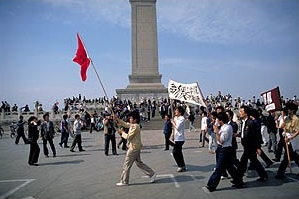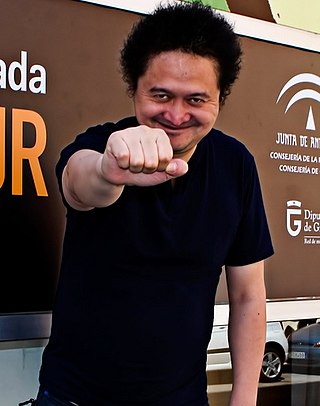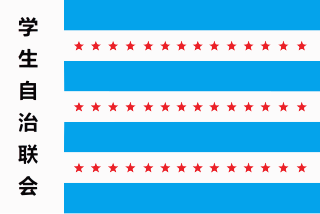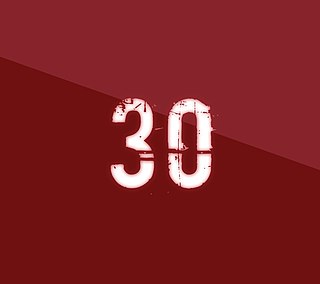Related Research Articles

The Tiananmen Square protests, known within China as the June Fourth Incident, were student-led demonstrations held in Tiananmen Square in Beijing, China, lasting from 15 April to 4 June 1989. After weeks of unsuccessful attempts between the demonstrators and the Chinese government to find a peaceful resolution, the Chinese government deployed troops to occupy the square on the night of 3 June in what is referred to as the Tiananmen Square massacre. The events are sometimes called the '89 Democracy Movement, the Tiananmen Square Incident, or the Tiananmen uprising.

The 1976 Tiananmen incident or the April 5 Tiananmen incident was a mass gathering and protest that took place on April 4–5, 1976, at Tiananmen Square in Beijing, China. The incident occurred on the traditional day of mourning, the Qingming Festival, after the Nanjing incident, and was triggered by the death of Premier Zhou Enlai earlier that year. Some people strongly disapproved of the removal of the displays of mourning, and began gathering in the Square to protest against the central authorities, then largely under the auspices of the Gang of Four, who ordered the Square to be cleared.

The Goddess of Democracy, also known as the Goddess of Democracy and Freedom, the Spirit of Democracy, and the Goddess of Liberty, was a 10-metre-tall (33 ft) statue created during the 1989 Tiananmen Square protests. The statue was constructed over four days out of foam and papier-mâché over a metal armature and was unveiled and erected on Tiananmen Square on May 30, 1989. The constructors decided to make the statue as large as possible to try to dissuade the government from dismantling it: the government would either have to destroy the statue—an action which would potentially fuel further criticism of its policies—or leave it standing. Nevertheless, the statue was destroyed on June 4, 1989, by soldiers clearing the protesters from Tiananmen square. Since its destruction, numerous replicas and memorials have been erected around the world, including in Hong Kong, San Francisco, Washington, D.C., and Vancouver.

The Tank Man is the nickname given to an unidentified individual, presumed to be a Chinese man, who stood in front of a column of Type 59 tanks leaving Tiananmen Square in Beijing on June 5, 1989. On the previous day, the government of China cleared the square of protesting students after six weeks of standoff, in the process killing hundreds or even thousands of people mostly in other parts of Beijing. The lead tank halted to avoid running him over, the man then climbed on top of the tank. The PLA soldiers operating the tank then opened a hatch used for entering and exiting the tank, and briefly talked to the man. The incident was filmed and shared to a worldwide audience. Internationally, it is considered one of the most iconic images of all time. Inside China, the image and the accompanying events are subject to censorship.

Tian Zhuangzhuang is a Chinese film director, producer and actor.

Zhang Yuan is a Chinese film director who has been described by film scholars as a pioneering member of China's Sixth Generation of filmmakers. He and his films have won ten awards out of seventeen nominations received at international film festivals.

I Love You is a 2002 Chinese drama film directed by Zhang Yuan and starring Xu Jinglei and Tong Dawei. The film was a co-production between the Xi'an Film Studio and Jewel Film Investment Company.

Zhang Jizhong is a Chinese film producer, director, teacher, and writer. He is known as one of the more prominent television producers in China. His best known productions include the CCTV adaptations of the Four Great Classical Novels of Chinese literature, namely Romance of the Three Kingdoms and The Water Margin, as well as adaptations of Louis Cha's wuxia novels. He is also known for building large film cities with the support of local government authorities, sets that have later been developed into tourist attractions.

Mama is a 1990 Chinese film directed by Zhang Yuan. Zhang Yuan's directorial debut, Mama is now considered a seminal film in the history of Chinese independent cinema, and by extension, as a pioneering film of the Sixth Generation of which Zhang is a member. Shot on a very low budget within Zhang Yuan's apartment, Mama follows the story of a mother and her mentally challenged adult son.

The 60th anniversary of the founding of the People's Republic of China took place on 1 October 2009. A military parade involving 10,000 troops and the display of many high-tech weapons was held in Tiananmen Square in Beijing and various celebrations were conducted all over the country. China's paramount leader Hu Jintao inspected the troops along Chang'an Avenue in Beijing. This parade was immediately followed by a civilian parade involving 100,000 participants.

During the 1989 Tiananmen Square protests and massacre in Beijing, the Chinese People's Liberation Army (PLA) played a decisive role in enforcing martial law, using force to suppress the demonstrations in the city. The killings of protestors in Beijing continue to taint the legacies of the party elders, led by Chinese leader Deng Xiaoping, and weigh on the generation of leaders whose careers advanced as their more moderate colleagues were purged or sidelined at the time. Within China, the role of the military in 1989 remains a subject of private discussion within the ranks of the party leadership and PLA.

Uerkesh Davlet, commonly known by his pinyin name Wu'erkaixi, is a Chinese political commentator known for his leading role during the Tiananmen protests of 1989.

The Beijing Students' Autonomous Federation was a self-governing student organization, representing multiple Beijing universities, and acting as the student protesters' principal decision-making body during the 1989 Tiananmen Square protests. Student protesters founded the Federation in opposition to the official, government-supported student organizations, which they believed were undemocratic. Although the Federation made several demands of the government during the protests and organized multiple demonstrations in the Square, its primary focus was to obtain government recognition as a legitimate organization. By seeking this recognition, the Federation directly challenged the Chinese Communist Party's authority. After failing to achieve direct dialogue with the government, the Federation lost support from student protesters, and its central leadership role within the Tiananmen Square protests.
The April 27 demonstrations were massive student protest marches throughout major cities in China during the 1989 Tiananmen Square protests. The students were protesting in response to the April 26 Editorial published by the People's Daily the previous day. The editorial asserted that the student movement was anti-party and contributed to a sense of chaos and destabilization. The content of the editorial incited the largest student protest of the movement thus far in Beijing: 50,000–200,000 students marched through the streets of Beijing before finally breaking through police lines into Tiananmen Square.
The 1989 Tiananmen Square protests and massacre saw a massive redeployment of People's Liberation Army (PLA) troops into and around Beijing. After the declaration of martial law, the Central Military Commission (CMC) mobilized at least 22 divisions from 13 Armies, which converged on Beijing. This force far exceeded the local garrison, with troops being sent in from across China. Altogether, roughly 300,000 troops were involved in the campaign to quell the protests. By their end, the PLA had proven that it was largely willing to enforce party decrees with lethal force. Multiple significant breaches of military discipline occurred after the imposition of martial law. Some cases involved officers or entire units being unwilling to obey directives from farther up the chain of command, others related to the misuse of military equipment, and some were responsible for casualties incurred during the night of June 3. It is unclear when, how, or even if some PLA units received orders to open fire on the protesters, and so knowing whether or not an incident amounts to insubordination is difficult. If the PLA as a whole received orders to use lethal force, CMC chairman Deng Xiaoping must have given his assent to it. CMC vice-chairman and President Yang Shangkun's orders to the Central Military Commission on the 20th of May 1989 explicitly deny troops the authority to use lethal force during martial law, even when their lives are threatened by the protesters. According to Li Xinming's report to the politburo on June 19 however, 10 PLA soldiers did end up dying, along with 13 from the People's Armed Police. For these 23 dead, they inflicted 218 deaths on the protesters, although some sources place this number in the thousands.

The Beijing Garrison Honor Guard Battalion, officially the PLA Honour Guard, is a ceremonial honour guard and specialised unit of the People's Liberation Army (PLA). It is composed of representatives of the People's Liberation Army Ground Force, Navy, and Air Force. Male soldiers in the battalion must be at least 180 cm tall, while females must be at least 173 cm tall. This honor guard battalion, while reporting directly to the Central Military Commission, falls under the operational control of the Central Theater Command. During parades, the battalion is led by a color guard detail bearing the PLA flag, a tradition which began in 1981.
The protests that occurred throughout the People's Republic of China in the early to middle months of 1989 mainly started out as memorials for former General Secretary Hu Yaobang. The political fall of Hu came immediately following the 1986 Chinese Student Demonstrations when he was removed by paramount leader Deng Xiaoping for being too liberal in his policies. Upon Hu's death on April 15, 1989, large gatherings of people began forming across the country. Most media attention was put onto the Beijing citizens who participated in the Tiananmen Square Protests, however, every other region in China had cities with similar demonstrations. The origins of these movements gradually became forgotten in some places and some regions began to demonstrate based on their own problems with their Provincial and Central Governments.

The 30th anniversary of Tiananmen Square protests of 1989 was, principally, the events that occurred in China and elsewhere on 4 June 2019 to commemorate the Chinese Communist Party's crackdown on the Tiananmen Square protests of 1989 in which hundreds of people were killed.

The 50th anniversary of the founding of the People's Republic of China took place on 1 October 1999. A military parade was held in Tiananmen Square in Beijing and various celebrations were conducted all over the country. China's paramount leader Jiang Zemin inspected the troops along Chang'an Avenue in Beijing. This parade was immediately followed by a civilian parade.

The National Day Parade, officially the National Day of the People's Republic of China Parade, is a civil-military parade event held at Tiananmen Square in Beijing, the capital of the People's Republic of China, on the National Day of the People's Republic of China on 1 October. It is organized by the People's Liberation Army, the People's Armed Police and the Militia, as well as civilian groups of the Chinese Communist Party (CCP). It has been held every decade since 1959, annually from 1950 to 1959, and has been broadcast live on China Central Television since 1984.
References
- ↑ Berry, Michael (2002). "Wording up a Sweat in a Celluloid Sauna" in Speaking in Images: Interviews with Contemporary Chinese Filmmakers . Columbia University Press, p. 147-48. ISBN 0-231-13331-6. Google Book Search. Retrieved 2008-09-05.
- ↑ Chen, Pauline (Winter 1996). "Screening History: New Documentaries on the Tiananmen Events in China". Cineaste . Vol. 22, no. 1. Retrieved 2008-09-05. (republished by the University of California Berkeley library)
- 1 2 3 4 Berry, p. 148
- 1 2 Tasker, Yvonne (2002). "Zhang Yuan" in Fifty Contemporary Filmmakers . Routledge Publishing, p.421. ISBN 0-415-18974-8. Google Book Search. Retrieved 2008-09-05.
- ↑ "Zhang Yuan's bio". Cinovision Productions. Archived from the original on 2008-06-16. Retrieved 2008-09-05.